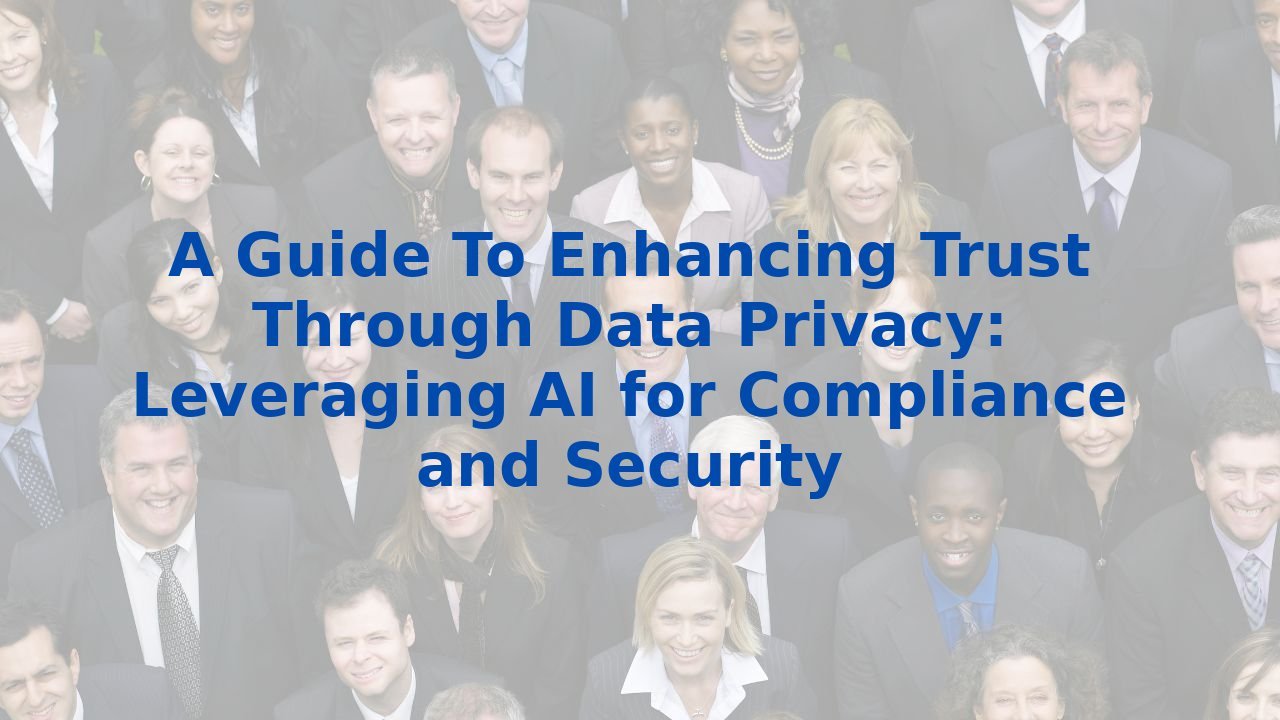A Guide To Enhancing Trust Through Data Privacy: Leveraging AI for Compliance and Security
A Guide To Enhancing Trust Through Data Privacy: Leveraging AI for Compliance and Security
The Importance of Data Privacy in Business
In an era where digital interactions define business landscapes, trust stands as the most valuable currency. For organizations, maintaining this trust hinges on one pivotal aspect: data privacy. As regulations like GDPR shape the legal requirements around data protection, compliance evolves from being a mere obligation to becoming a strategic asset. Leveraging artificial intelligence (AI) can significantly enhance data privacy practices, leading to improved efficiency, stronger compliance, and fortifying customer trust.
The Role of AI in Enhancing Data Privacy
AI emerges as a transformative ally in navigating the complexities of data privacy management. Its capabilities enable organizations to automate and optimize several critical processes, thereby reinforcing data protection. Here’s how AI can elevate data privacy:
- Automated Data Processing: AI can streamline the processing of personal data by automating repetitive tasks. This automation minimizes human error, ensuring that data is safeguarded in strict adherence to regulations.
- Enhanced Security Measures: With AI-driven systems, organizations can proactively detect and prevent data breaches far more effectively than conventional measures. Advanced algorithms analyze patterns and anomalies, allowing for swift identification of potential security threats.
- Compliance Monitoring: AI enhances compliance through real-time monitoring of data privacy regulations, ensuring businesses are always in tune with dynamic legal landscapes. This proactive approach reflects commitment to ethical practices and mitigates risks associated with non-compliance.
- Customer Data Management: AI facilitates optimized management of customer data, ensuring that sensitive information is securely stored and accessed solely when necessary.
Benefits of AI for Improving Efficiency
Integrating AI into data privacy practices isn’t just about meeting legal frameworks; it’s about enhancing organizational efficiency. Here are some of the tangible benefits:
- Reduced Manual Labor: Automating data-related tasks alleviates the burden on employees, empowering them to engage in higher-value strategic work, fostering innovation within teams.
- Improved Accuracy: AI systems excel at reducing errors during data handling. With precision in data processing, organizations can mitigate risks associated with human oversight.
- Enhanced Transparency: Transparency is vital for trust, and AI provides organizations with comprehensive insights into data activities, enabling accountability in operations.
The Importance of Employee Training for AI
The true potential of AI can only be unlocked when employees are equipped with the right skills and knowledge. Training becomes essential for leveraging AI effectively within data privacy frameworks. Consider these key points:
- Understanding AI Capabilities: A solid grasp of AI’s capabilities enables employees to utilize tools effectively. Awareness of what AI can and cannot do minimizes frustration and enhances application across the organization.
- Ethical Use: Training ensures that employees handle data ethically and responsibly. It fosters a culture of integrity, where data is treated as a valuable asset rather than just a resource.
- Continuous Improvement: The world of AI is continuously evolving. Regular training keeps teams abreast of advancements, ensuring that the organization remains agile and compliant amidst shifting regulations.
Conclusion
Embracing AI in the domain of data privacy extends beyond compliance. It paves the way for enhanced efficiency, security, and ultimately, customer trust. By automating essential processes, optimizing security measures, and implementing real-time compliance monitoring, organizations can create a robust data privacy posture.
Simultaneously, fostering a culture of continuous learning through employee training enhances the ethical application of AI tools, ensuring personal data is managed responsibly. The intersection of AI and data privacy not only safeguards brands but also fuels the growth of authentic, lasting trust within the digital economy. Harnessing this synergy today means establishing a more secure foundation for tomorrow.



